Simply put, lemon juice makes the best hummus.
But what if you don’t have any on hand?
What if you’re tired of lemons?
Where will you turn?

Do not fear!
The best substitute for lemon juice in hummus is white vinegar. Lemon juice gives hummus a tangy, citrus-y taste, and white vinegar has the same mild acidity that makes lemon juice so perfect for adding to hummus.
In this article, we’ll explore 15 substitutes for lemon juice in hummus.
15 Substitutes for Lemon Juice in Hummus

When you’re looking for a hummus recipe, you’re going to find lemon juice in the ingredients list.
A lot of people don’t like the taste of lemon in their hummus, so they look for ways to get around using it.
The good news is that there are plenty of alternatives!
And here they are:
1. White vinegar
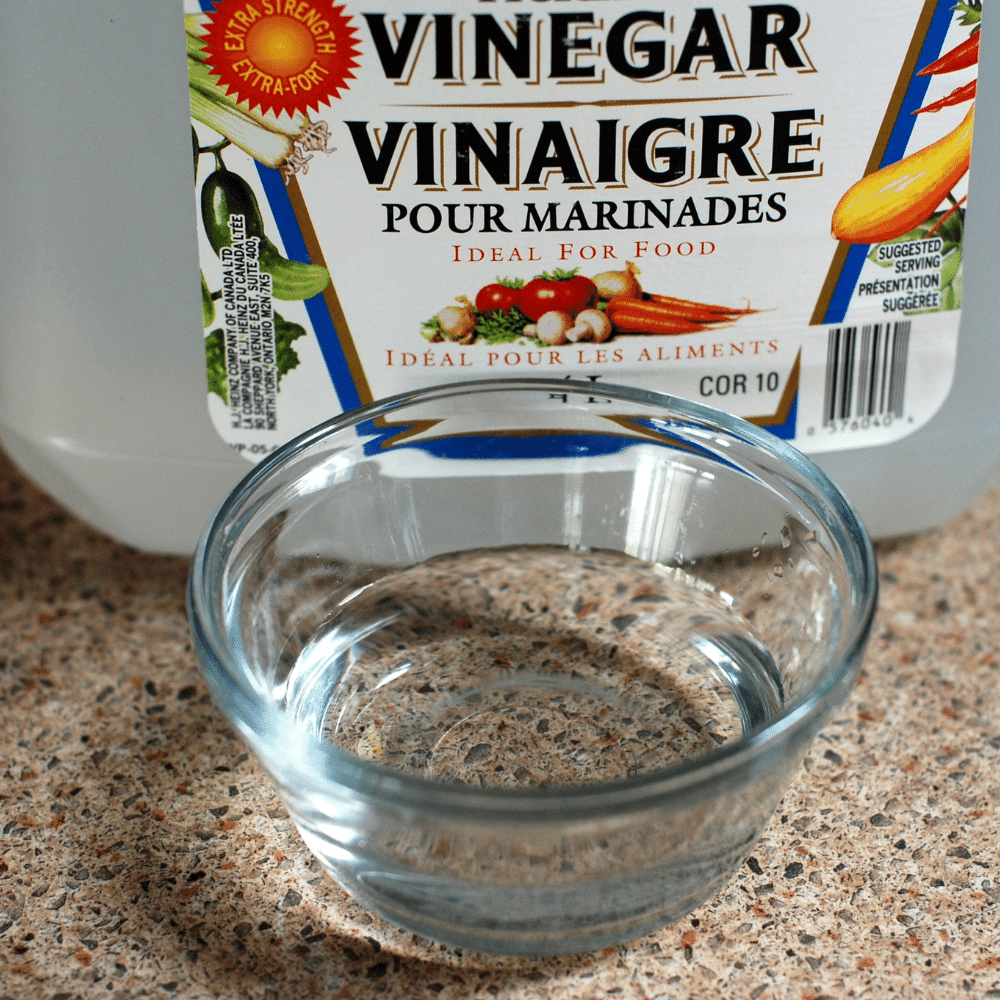
When you need to replace the lemon juice in your hummus, white vinegar is a great solution.
It has a sharp tang that blends perfectly with the other flavors in your dip.
If you find that the acidic bite of the vinegar is too strong, simply reduce the amount of white vinegar you’re using, or dilute it with water before adding it to your hummus.
2. Cilantro
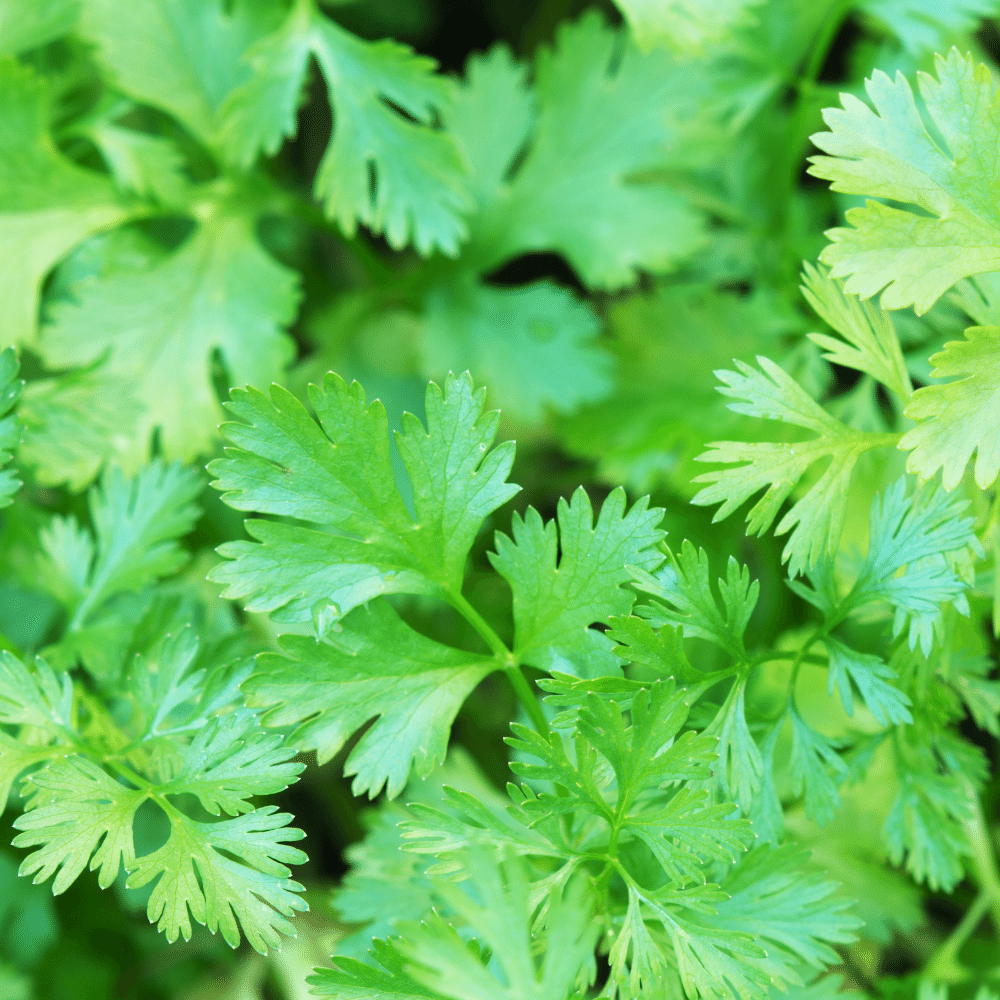
Cilantro is another great option for replacing lemon juice in hummus.
It’s got an earthy flavor that isn’t as overpowering as the lemony bite of fresh lemon juice, but still gives your hummus a really nice taste.
The best way to add cilantro is by using it as a garnish at the end of cooking time.
3. Apple Cider Vinegar

When I use apple cider vinegar instead of lemon juice in my hummus recipes, I’m always surprised at how much sweeter it tastes.
It’s like lemon juice’s mellow older sister—same family of flavors but with a smoother edge and a softer bite.
4. White Wine Vinegar

Another great substitute for lemon juice is white wine vinegar.
This will add a mild, fruity flavor to your hummus recipe.
Like apple cider vinegar, white wine vinegar won’t overpower the other ingredients in your recipe—so go ahead and experiment with different amounts to see what works best for you!
5. Lime Juice

Lime juice is another great substitute for lemon juice in hummus.
It can be used on its own or combined with other ingredients such as water, olive oil, and garlic powder.
The best way to use lime instead of lemon is by adding one teaspoon per cup of chickpeas (or about two tablespoons per 15-ounce can).
If you do not have fresh limes available, lime zest can also serve as an excellent addition to your hummus recipe.
6. Balsamic Vinegar
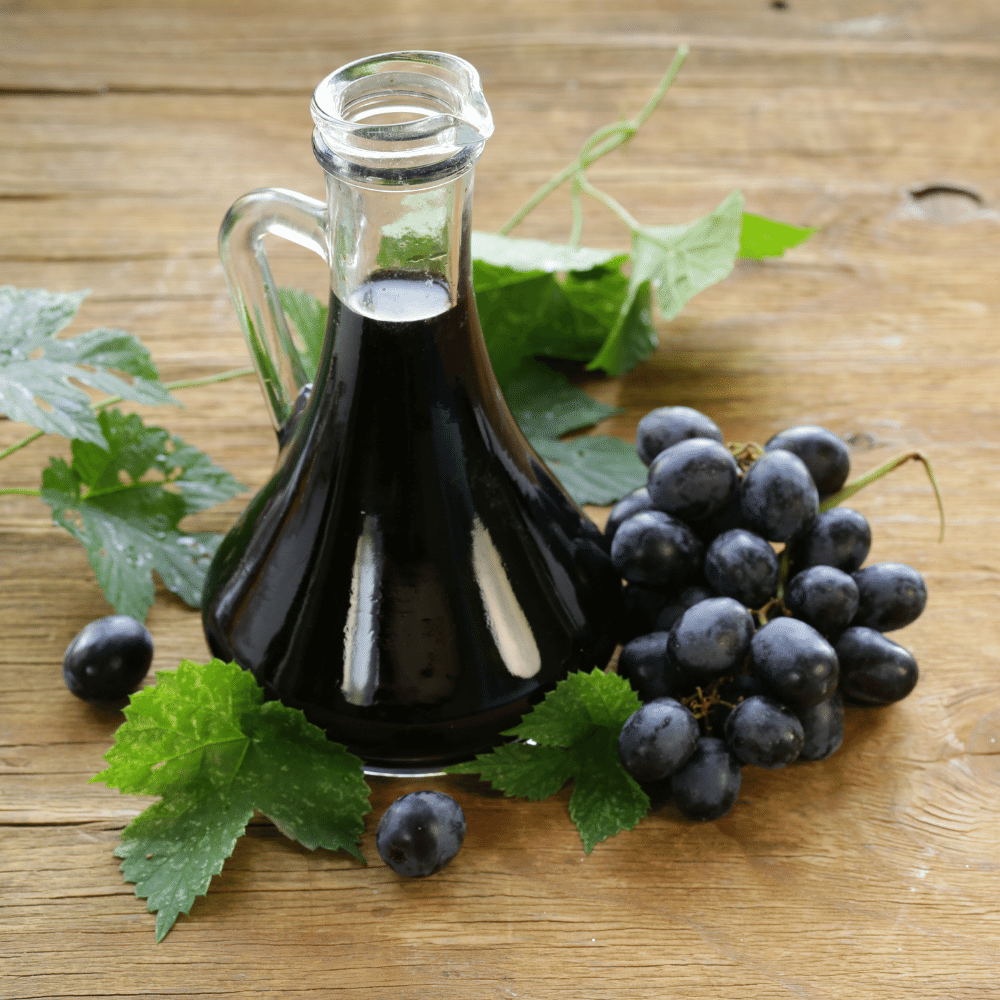
Balsamic vinegar is great for hummus because it adds a rich and sweet flavor that’s less acidic than lemon juice.
Balsamic vinegar is also perfect for drizzling over your finished hummus as a garnish.
7. Rice Wine Vinegar
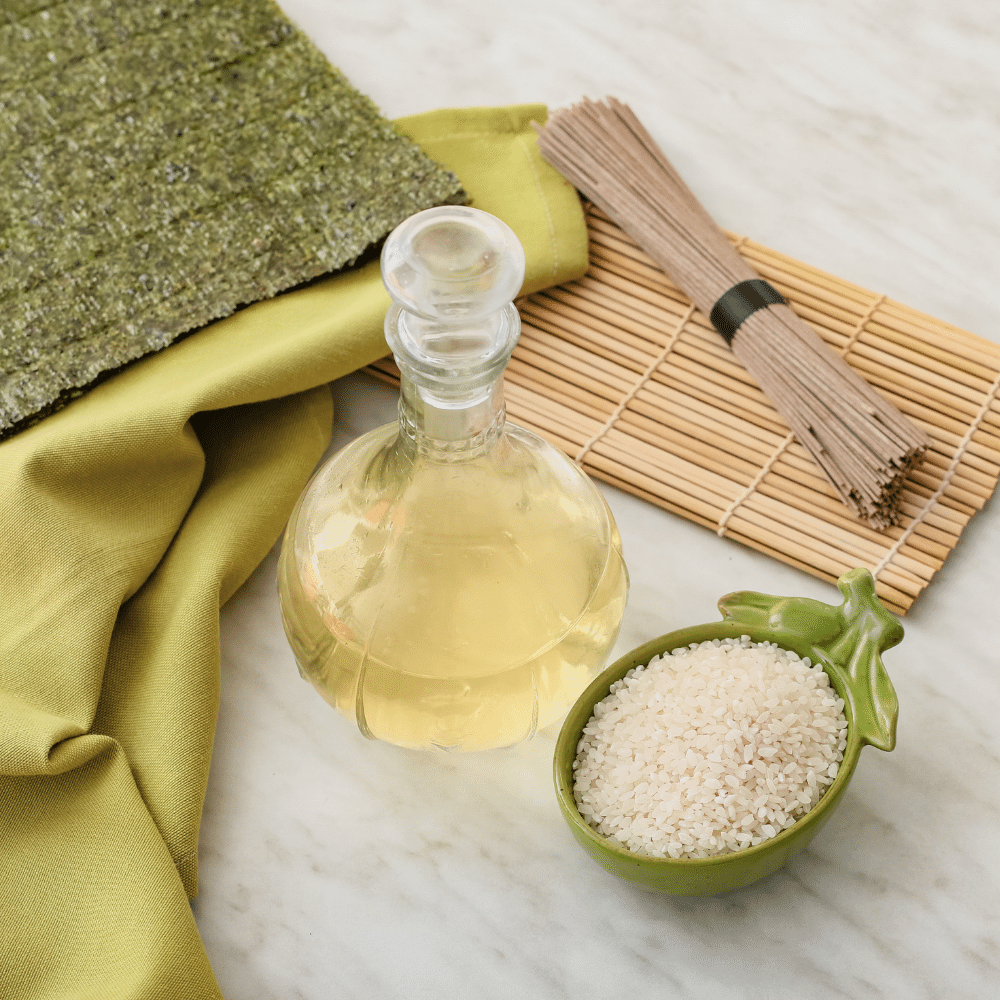
If you’re looking for something with a milder flavor than balsamic vinegar, you’ll want to try rice wine vinegar.
Rice wine vinegar is especially effective if you’re making green pea hummus because the mild flavor of rice wine vinegar won’t overwhelm the delicate sweetness of the peas.
8. Malt Vinegar

Malt vinegar is a type of vinegar made from malted barley or other grains that have been allowed to germinate.
Unlike most types of vinegar, malt vinegar is not very acidic—in fact, it’s actually sweeter than most other vinegars.
Its mild sweetness adds a unique flavor that pairs well with garlic, cumin, and other spices commonly found in hummus.
Try replacing the lemon juice with 1/2 teaspoon malt vinegar per 1 cup hummus!
9. Sherry Vinegar

Sherry vinegar is another good choice when it comes to adding an earthy and tart taste that is less acidic than other vinegars.
I find that it has a more mild flavor profile than malt vinegar, but it still gets the job done!
10. Red Wine Vinegar
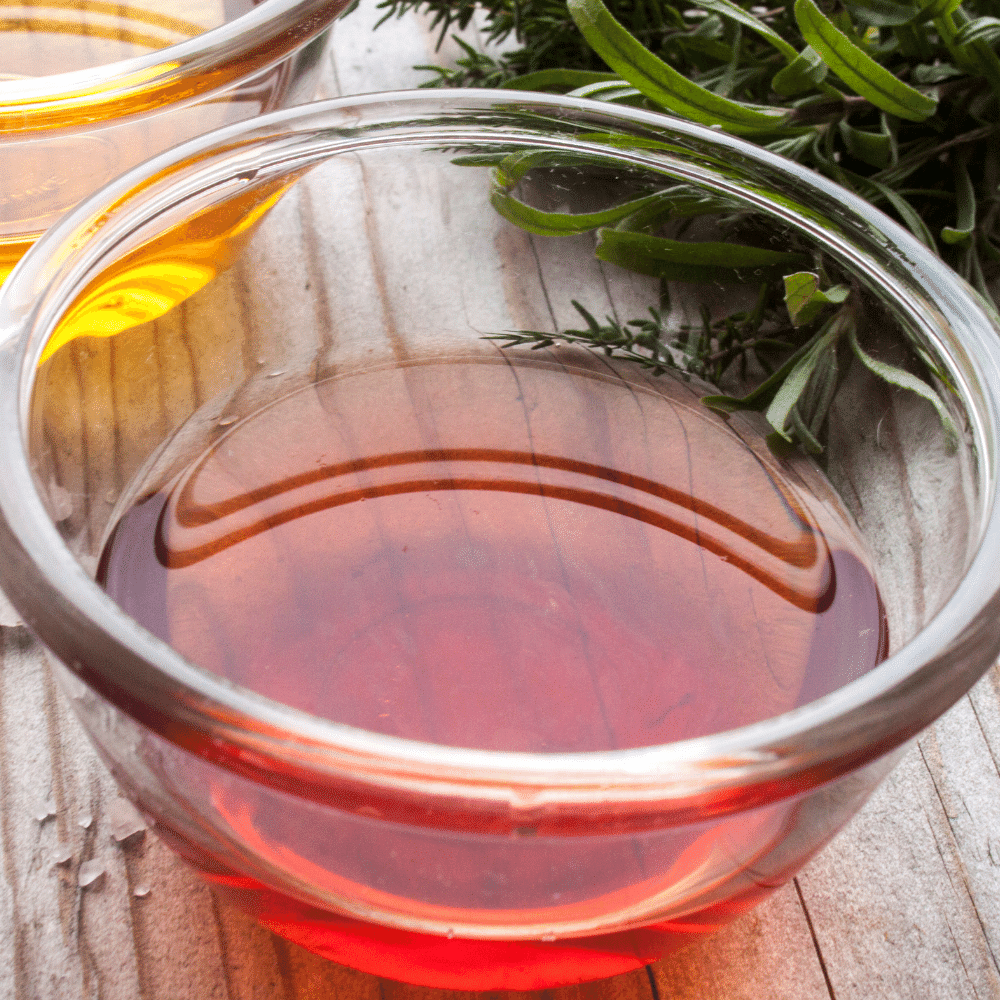
Red wine vinegar adds a tangy and sharp flavor to the recipe that is less acidic than lemon juice, so if you’re sensitive to acidity, this might be the best option for you.
Plus, it adds a great pop of color that looks amazing next to the creamy texture of hummus, which makes it perfect for serving at your next dinner party!
11. Orange Juice

This citrus substitute adds an extra splash of color to your hummus while still providing the acidity you need to balance out the flavors in your recipe.
12. Spice

If you like things spicy, add a small amount of cayenne pepper or crushed red pepper flakes to taste—you won’t regret it!
For an even spicier version, you can use some harissa paste instead of cayenne pepper or red pepper flakes; just be careful not to overdo it with this one because it packs a serious punch!
13. Pickle brine
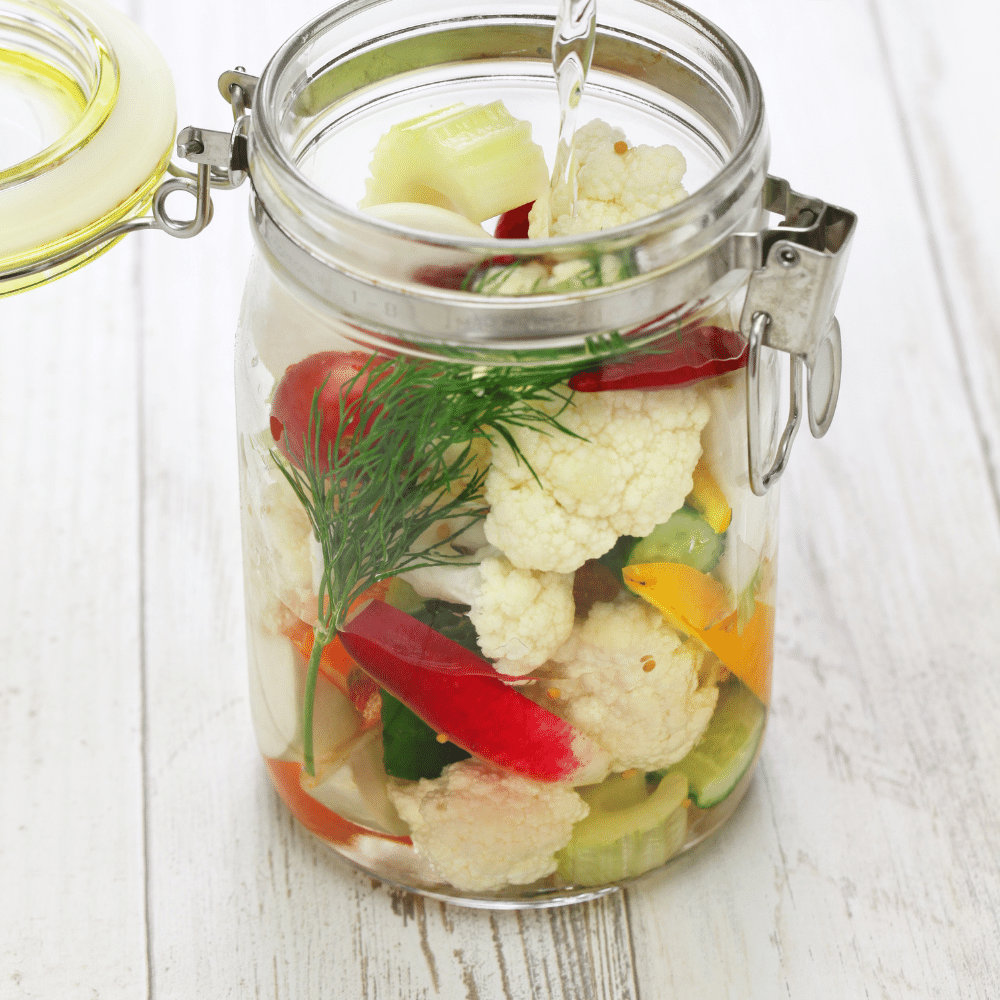
Pickle brine makes a great substitute for lemon juice when you want to add some zing to your hummus—it’s got a good amount of salt already in it, and the vinegar gives it a tangy flavor.
14. Citric acid
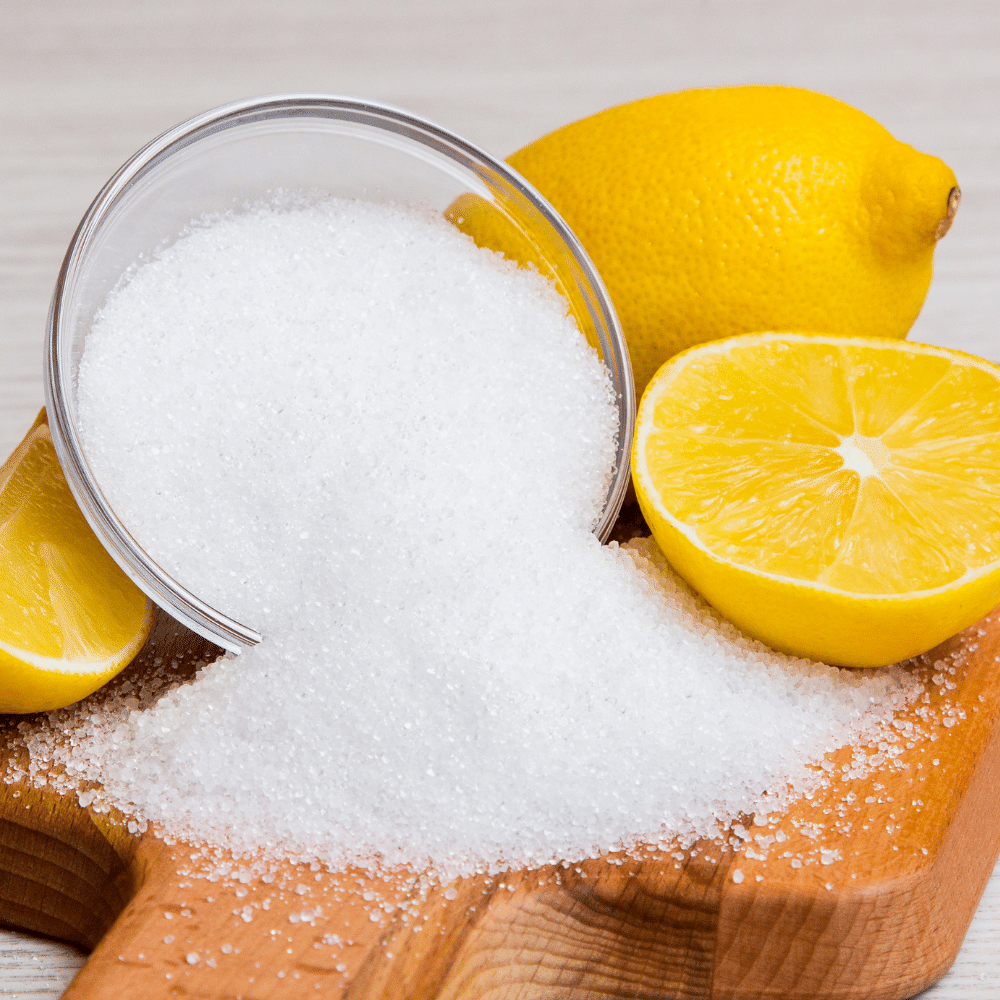
And citric acid is another great alternative to lemon juice if you don’t want to add any liquid at all.
It’s such an awesome ingredient in the kitchen because it helps prevent food from spoiling—it works on everything from pickles to cookies!
But be careful: citric acid is used in many other foods too, so never use it in recipes that will go into the mouth!
It will turn your baked goods bitter or change their texture completely.
15. Sour Cream/greek Yogurt

Adding dairy to your hummus is an easy way to make it thicker and creamier.
To sub lemon juice for sour cream or Greek yogurt, experiment with the amounts until you get the flavor you want.
For example, if your recipe calls for 1/4 cup of lemon juice, start by adding 1-2 tablespoons of sour cream or Greek yogurt.
Mix it up and see what you think.
Then keep adding more until you’re satisfied with how it tastes.
How to Make the Perfect Hummus Without Lemon Juice
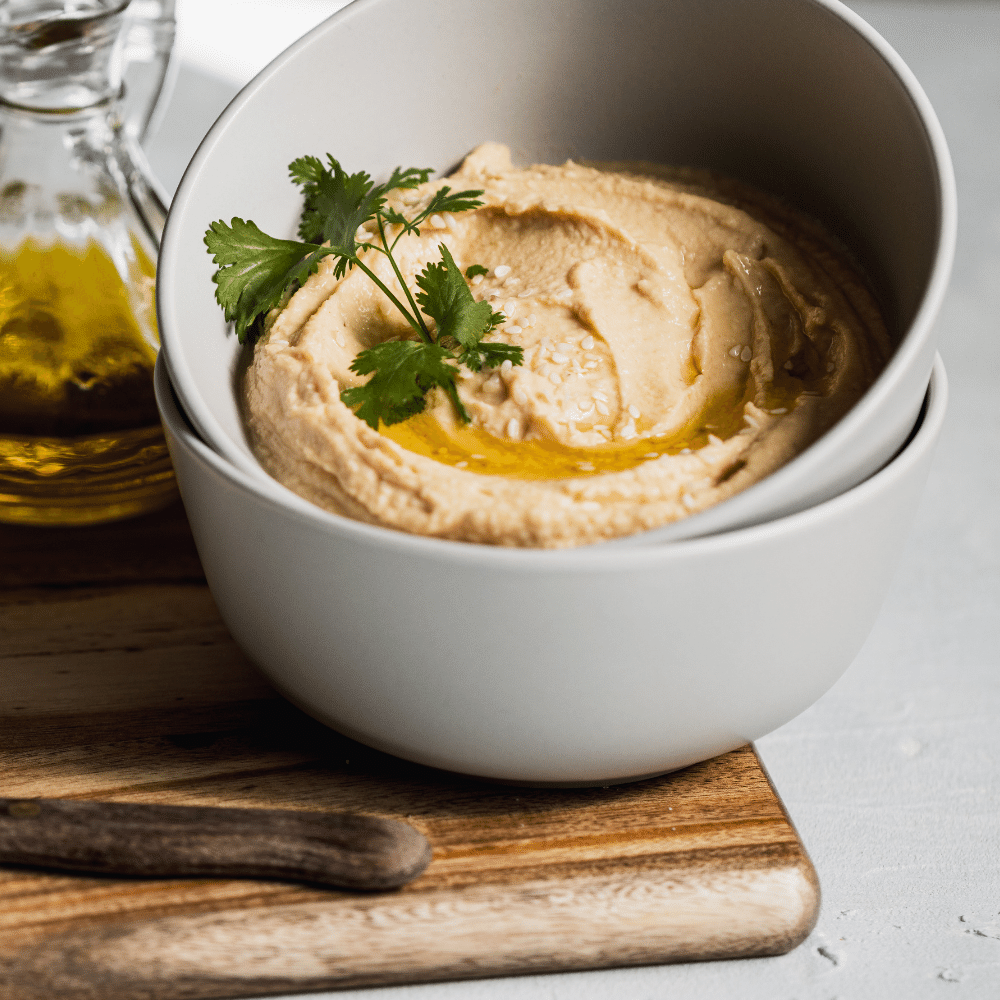
Sometimes you’re just craving hummus but you’re out of lemons.
Or maybe you just don’t want to add citrus to it.
If that’s the case, we’ve got some news for you: you can still make a delicious hummus without using lemon juice.
It’s so easy!
- First, you’ll want to start with the right chickpeas. You’ll want to get dried chickpeas and soak them overnight in water.
- When they’re ready, rinse them off and put them in your slow cooker or Instant Pot with salt and water (depending on what appliance you’re using).
- Then cook on high for about 4 hours or until the beans are soft.
- Once your chickpeas are cooked, drain them but save some of the liquid from the beans.
- When you’re ready, put those chickpeas into a food processor with tahini sauce, cumin powder, garlic cloves (chopped or whole), salt, pepper and any other spices that tickle your fancy!
- Make sure everything gets mixed up well before adding olive oil or sunflower oil for extra flavor.
- If needed, you can add a little bit more liquid from the beans as well—just be careful not to make it too runny!
And voila!
How to Choose the Right Substitute for Lemon Juice in Hummus
When replacing lemon juice in your hummus recipe, consider these three factors:
The Acidity Level of The Replacement
If you’re going to replace the lemon juice in your hummus recipe, you’ll want to make sure that whatever you choose has a similar acidity level.
Lemon juice is actually more acidic than vinegar, which is why it’s often preferred when making hummus.
If you’re looking at a substitute for lemon juice that isn’t nearly as acidic as lemon juice, like milk or wine, you might want to add something more acidic on its own (like lemon zest or vinegar) to make up for it.
The Taste of The Replacement
The most important thing is to make sure that whatever you choose offers a similar flavor profile to lemon juice.
This means your chosen substitute should add acidity and brightness to your dish.
In addition to adding acidity, the best substitutes for lemon juice will also help balance out the flavors in other ingredients.
For example, tahini can be quite bitter, and you may find yourself wanting to add extra salt and garlic to compensate for that bitterness.
However, if you use an ingredient with a more mild acidity—such as white wine vinegar—you may not need as much salt or garlic because it’s not as bitter as tahini.
Choose the right substitute for your recipe by thinking about how it will affect all of the other components in your dish.
Whether or Not the Replacement Will Change the Color of Your Final Product
If you’re looking to replace lemon juice in your hummus, there’s one thing that’s going to be totally unavoidable: a color change.
Lemon juice is naturally pretty acidic, which can create an off-white color for your hummus.
However, some of the replacements we mention above may change the color more than others—so it’s important to keep that in mind as you get started.
The good news is that your dip will probably still taste great!
It just might look a little different from what you’re used to.
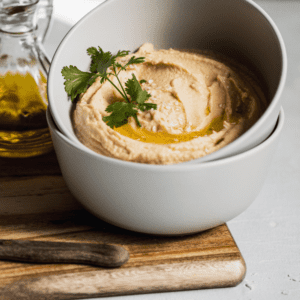
15 Substitutes for Lemon Juice in Hummus
Ingredients
- White vinegar
- Cilantro
- Apple Cider Vinegar
- White Wine Vinegar
- Lime Juice
- Balsamic Vinegar
- Rice Wine Vinegar
- Malt Vinegar
- Sherry Vinegar
- Red Wine Vinegar
- Orange Juice
- Spice
- Pickle brine
- Citric acid
- Sour cream/Greek yogurt
Instructions
- Pick your favorite alternative from this list to use instead of lemon juice.
- Prepare the rest of your ingredients.
- Be ready to enjoy your hummus in no time!
Hi, I'm Benjamin. I love cooking, long walks, and my girlfriend! Here you’ll find simple and delicious recipes that you can make in 30 minutes or less.

